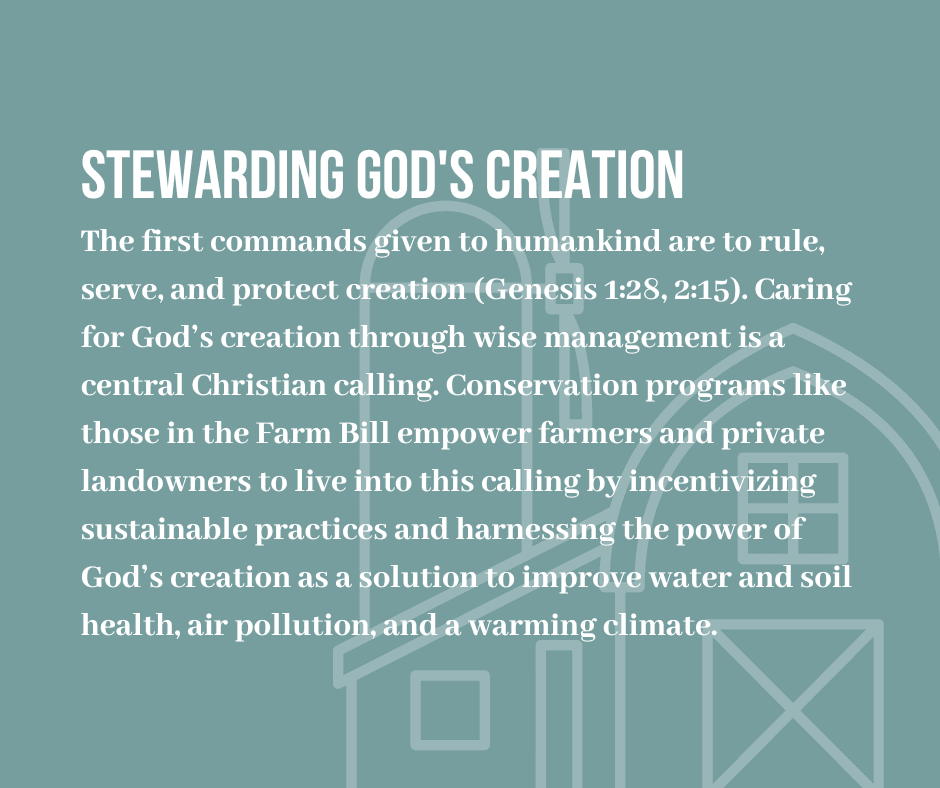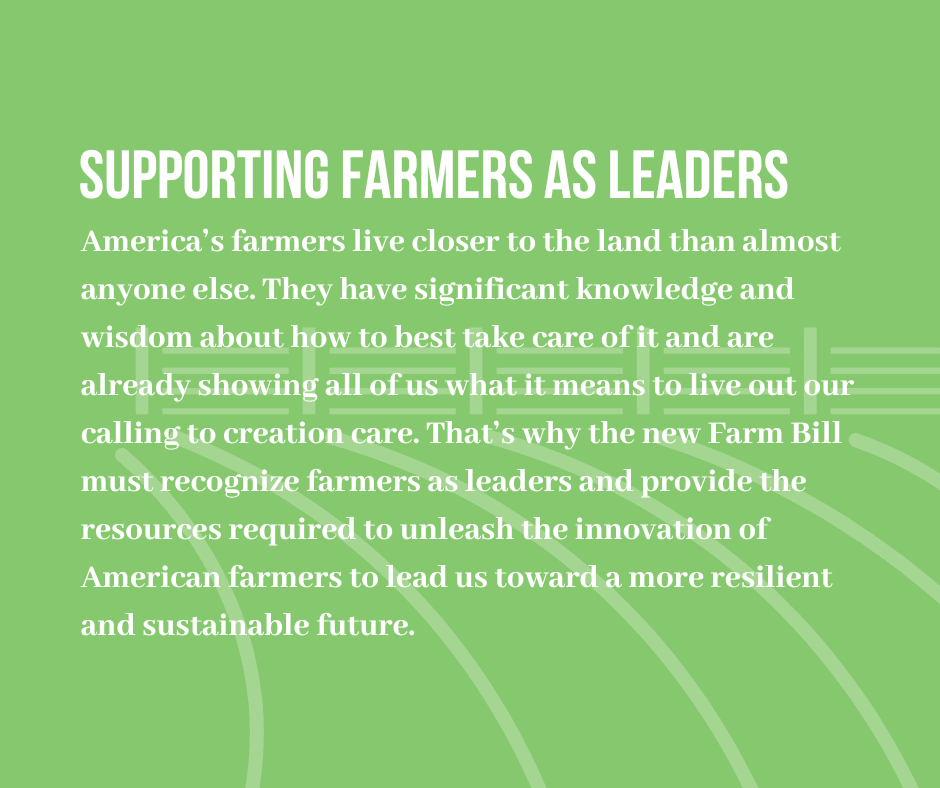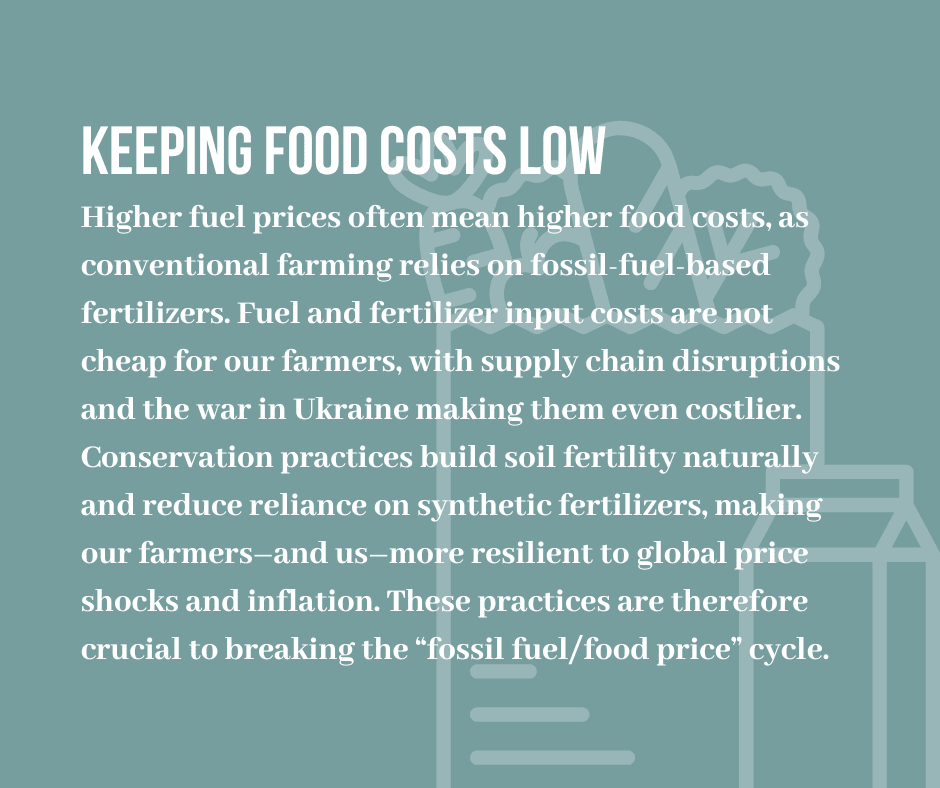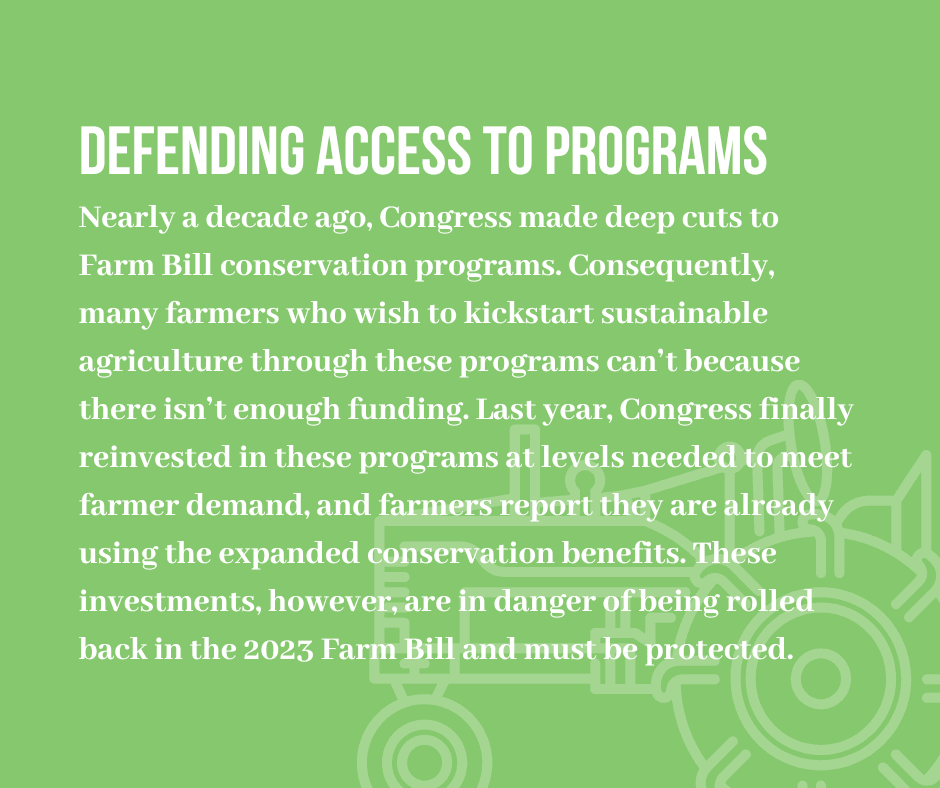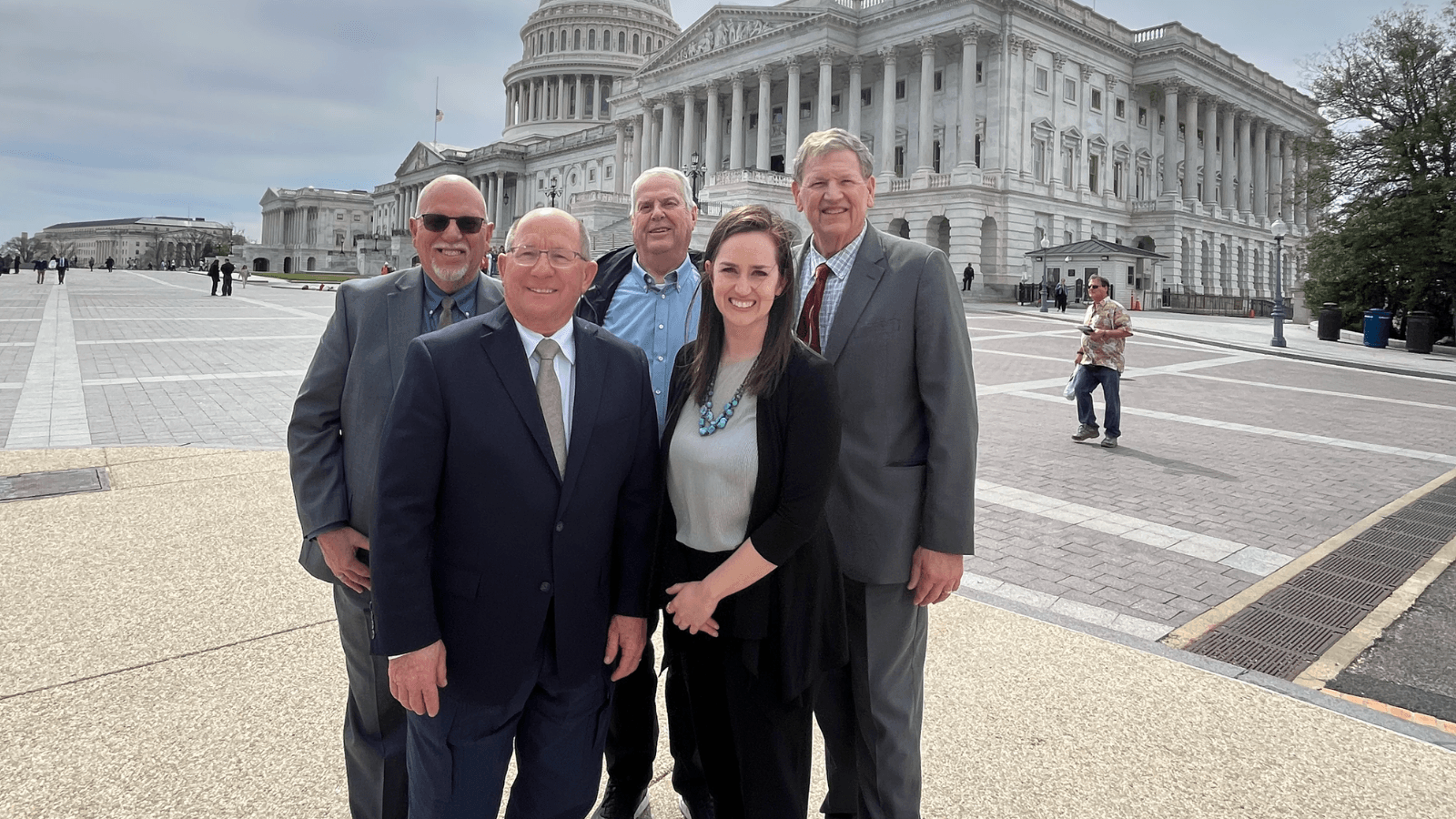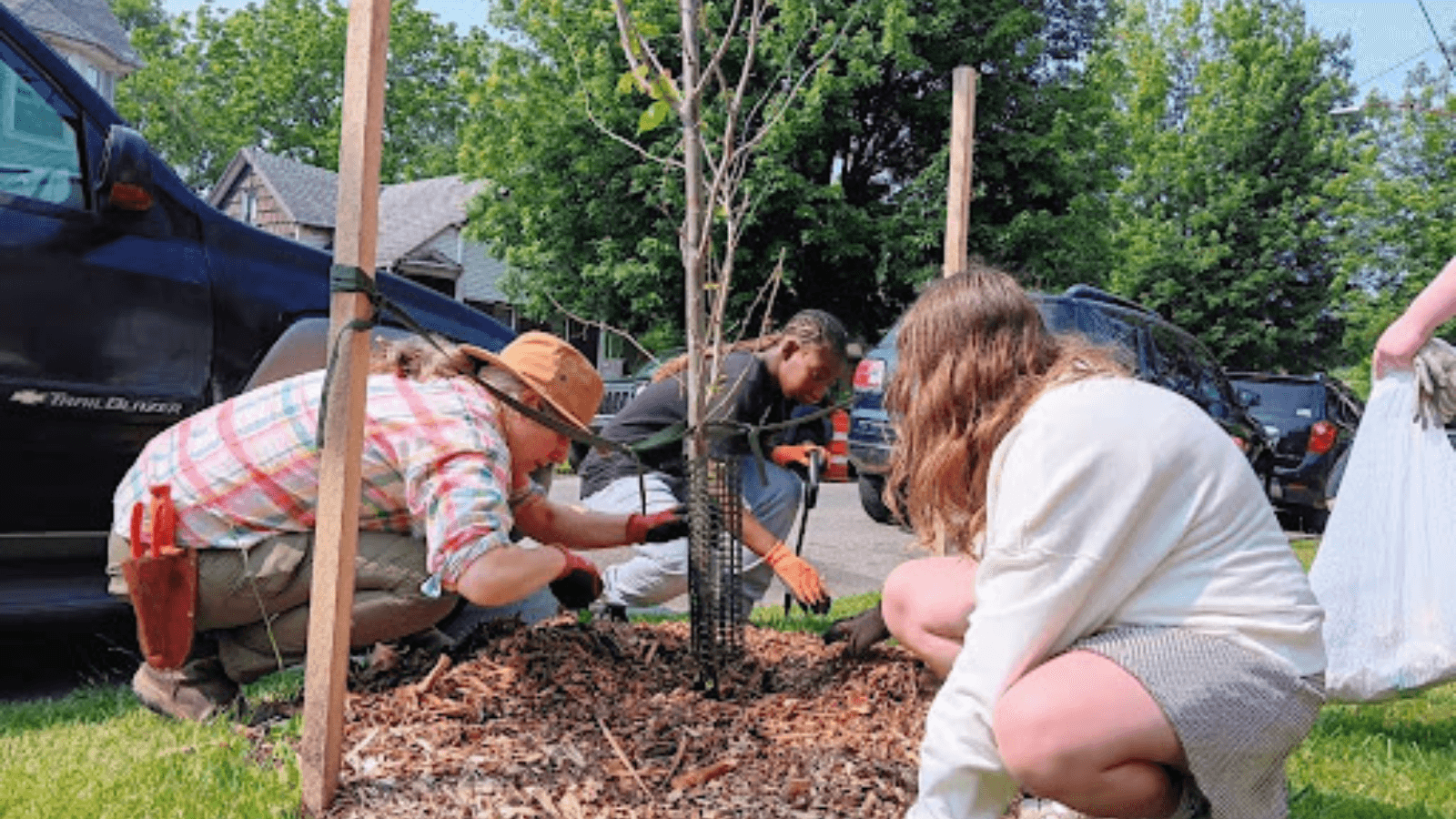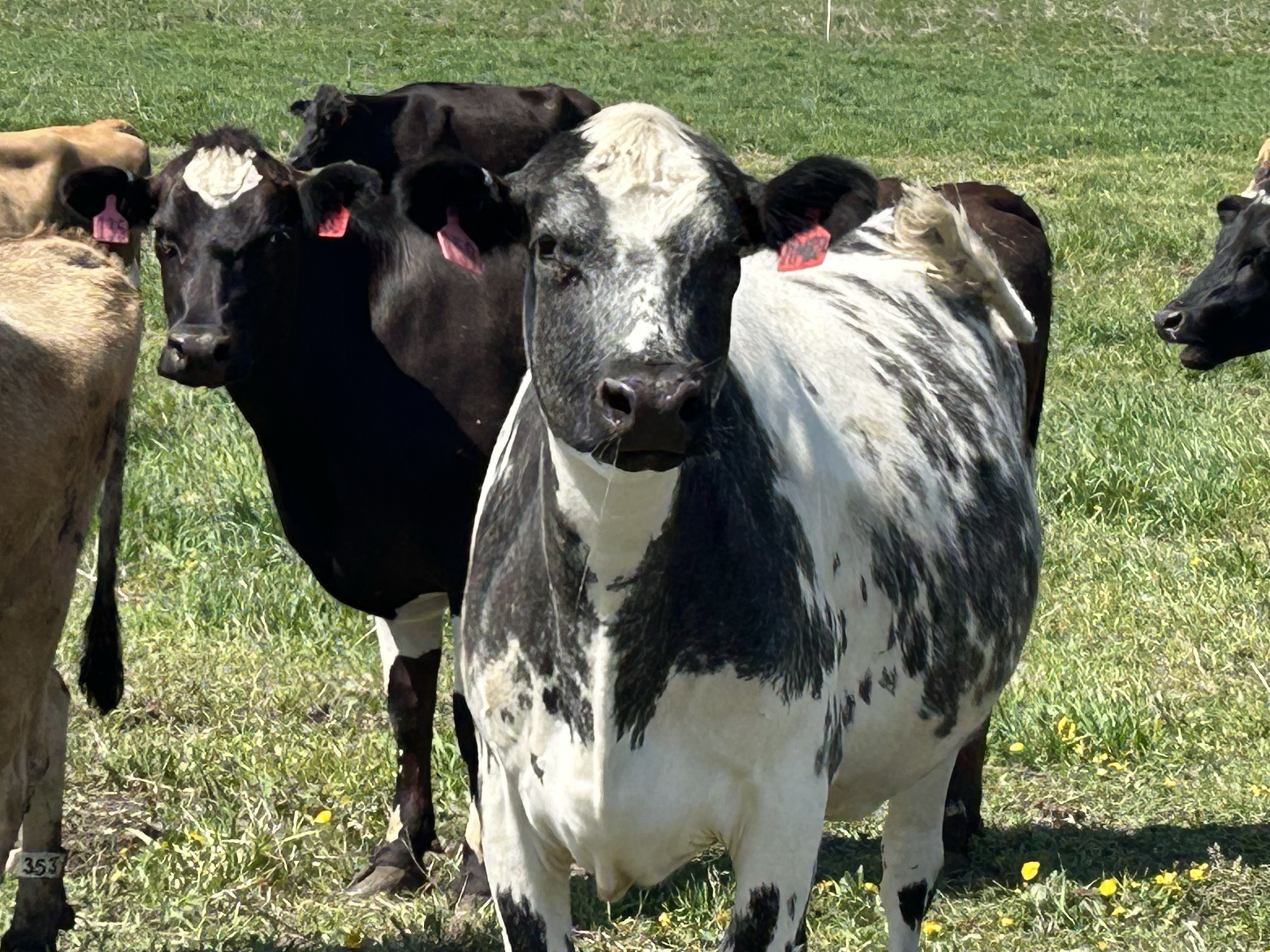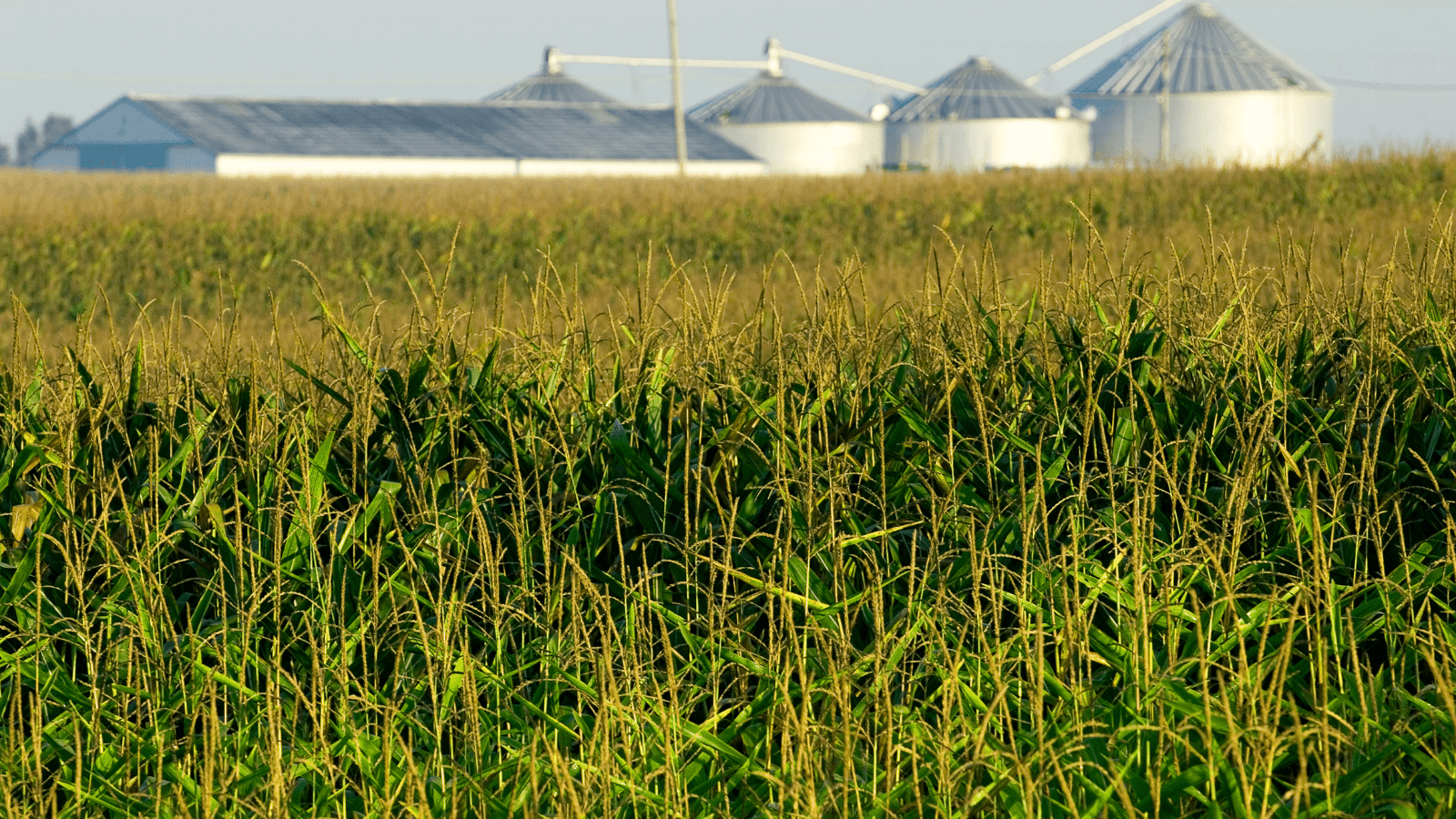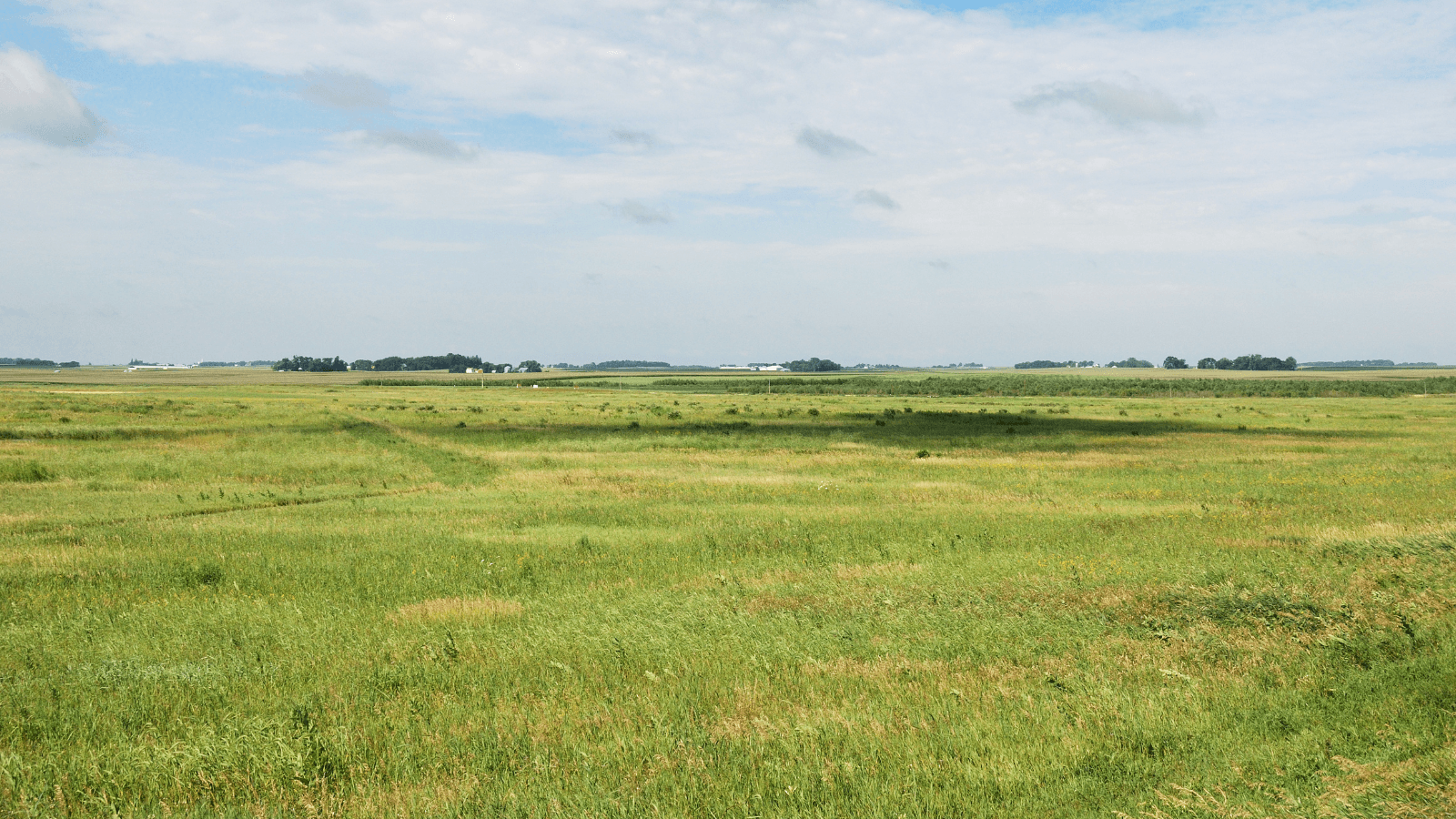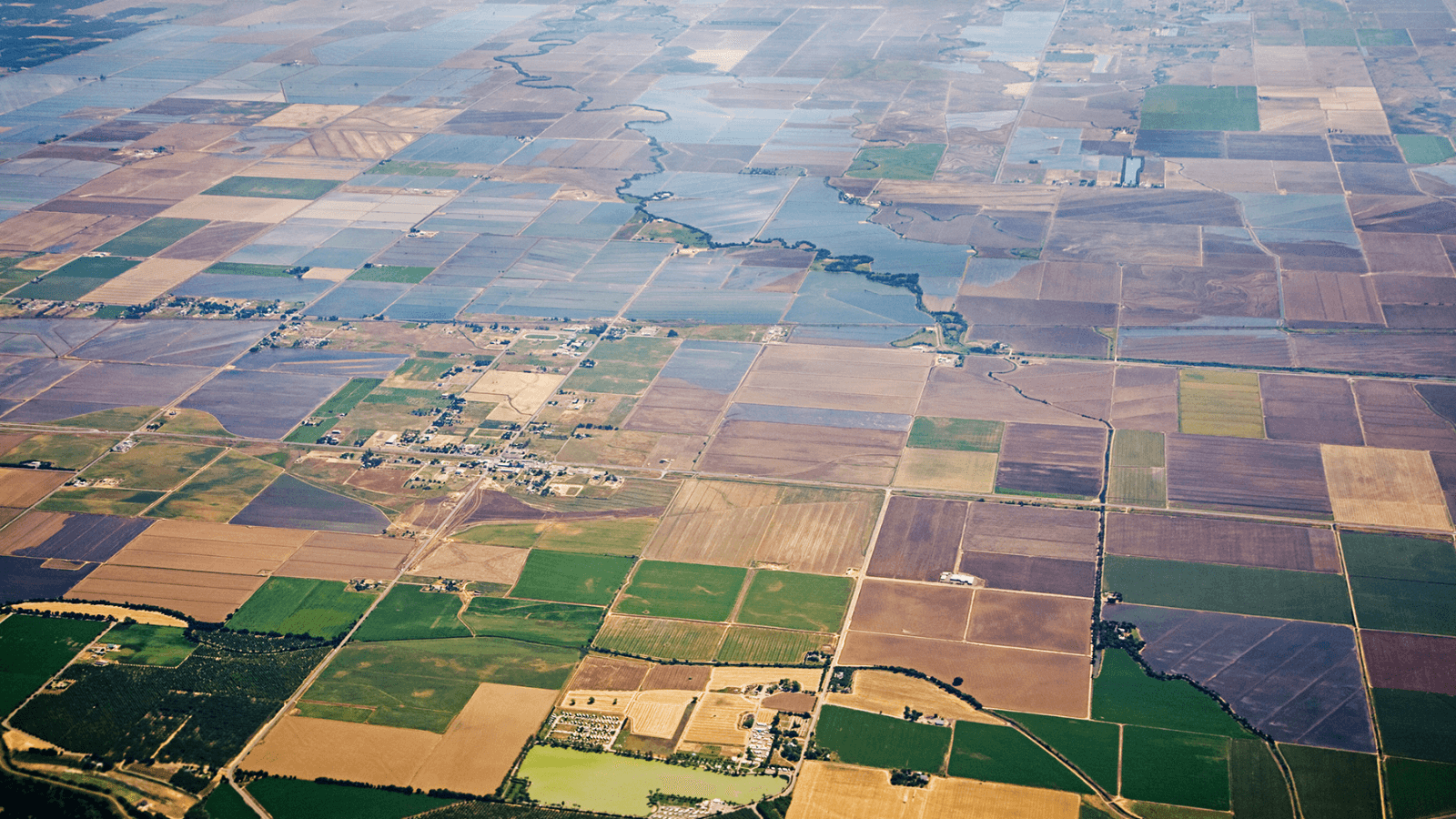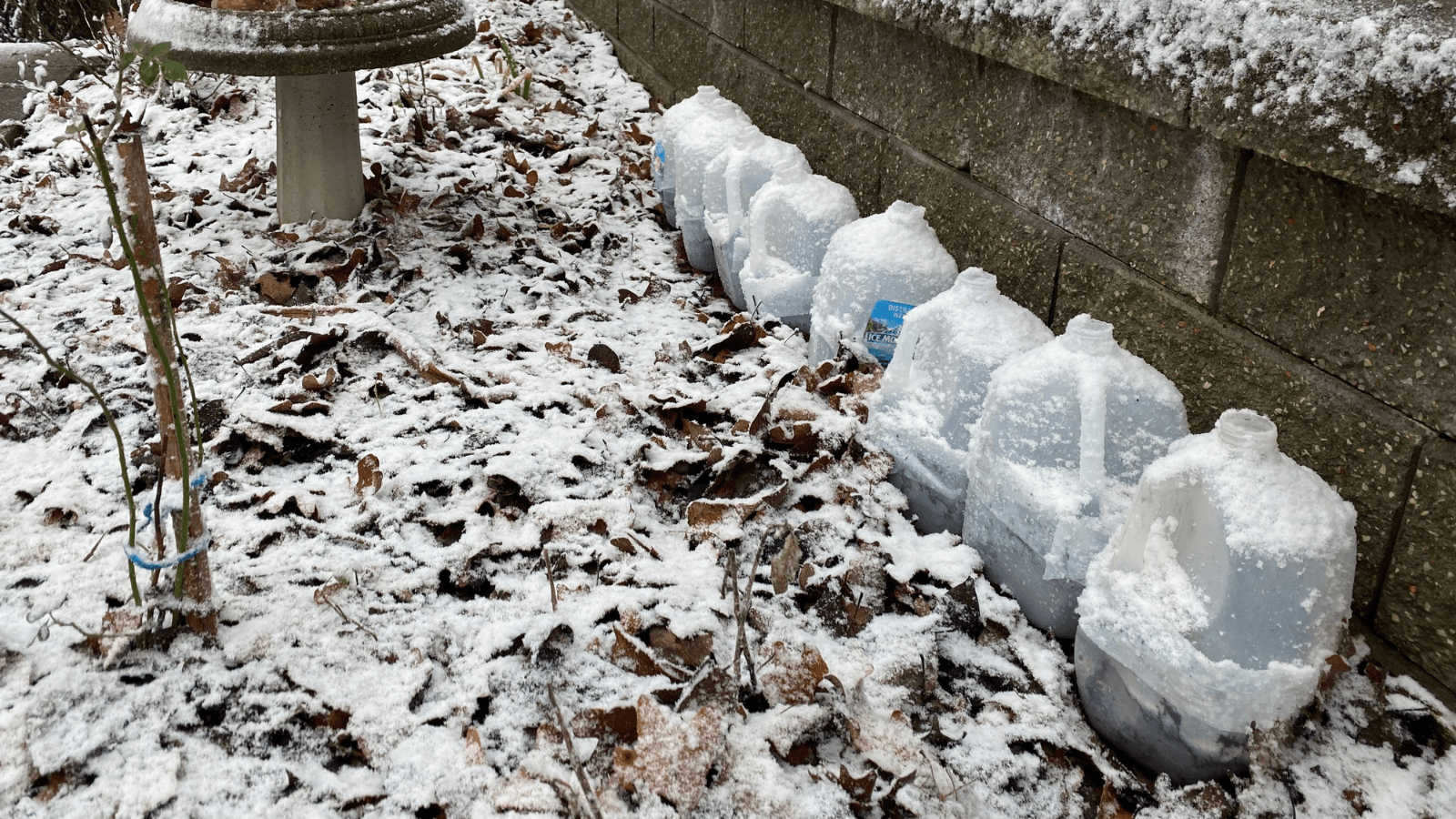WHAT IS THE FARM BILL?
Every five years, Congress must reauthorize the U.S. Farm Bill. This bill authorizes hundreds of billions of dollars in funding for everything from crop insurance for America’s farmers to food assistance for hungry families. It also includes $6 billion in annual conservation funding to improve soil health, increase water quality, conserve wildlife habitats, and harness the power of God’s creation to build resilience to climate-fueled extreme weather and lock away soil-enriching carbon. The current Farm Bill expires in 2023, and Congress is currently working on drafting a successor.
A conservation-forward Farm Bill is critical to protecting God’s creation, defending our kids’ health, and safeguarding our families, farmers, and food systems from climate-fueled disasters.
Learn more about the Farm Bill and how creation care extends to our nation's farmlands by subscribing to Regenerate, EEN's monthly faith and agriculture newsletter. With a diverse array of content from Upper Midwest Coordinator Tim Olsen, along with expert guest writers, this newsletter is for farmers and non-farmers alike. Sign up by clicking the link below!
Why Does the Farm Bill Matter for Christians?
What Farmers Are Saying
This year, EEN held twelve “Faith and Agriculture” listening sessions across Iowa, Minnesota, South Dakota, Michigan, and Pennsylvania to hear directly from farmers in the field about their priorities for the newest Farm Bill. Here's what we heard:
1. Keep new conservation benefits for farmers fully intact and stop efforts to repurpose conservation funds to other areas
2. Advance on-farm data collection and monitoring of soil and water health
3. Help conservation programs and incentives actually reach farmers by investing in technical assistance, staffing, public-private partnerships, and peer-to-peer information exchanges
4. Reduce barriers for conservation on rented lands and increase support for next generation, beginner, young, and underrepresented farmers to acquire land
5. Make a bold investment in transformational resilient agriculture research
How you can get involved
Join us in lifting your voice to support American farmers by sending a message to lawmakers about the benefits of a climate-smart, conservation-forward Farm Bill for the health and wellbeing of our children, food systems, farmers, and God’s creation. Click the link below to get started.
Learn More About Faith & Agriculture
Over the last two years, the EEN community has rallied behind our nation’s farmers and ranchers, advocating for increased support to chronically oversubscribed and underfunded voluntary conservation agriculture programs. EEN’s efforts resulted in a historic success with the inclusion of a permanent funding increase to conservation agriculture programs in the One Big Beautiful Bill Act (OBBA).
45Z, first introduced via the Inflation Reduction Act then enhanced under the One Big Beautiful Bill, has the opportunity to not only supercharge the American Soil Health Movement, but change global agriculture. Learn more about this tax credit and how America's famers can be prepared for the program from an expert in the field, Mitchell Hora.
Rev. Jack shares some of the questions and lessons around fasting, food, and farming that he was able to ponder during his recent sabbatical.
Learn more about the importance of tree cover in urban areas through EEN's recent tree care work in Cleveland, Ohio.
EEN's Upper Midwest Coordinator, Rev Tim Olsen, shares the holistic farming story of Seven W Farm in Iowa.
Marty discusses who can be seen as a farmer's neighbor and how land stewardship practices allow farmers to care for their multitude of neighbors and honor God in their work.
Kent discusses the realities of the condition of Iowa's land and soil, the programs that have been helping, and closes with a call to action for Christians to steward the land productively, but not excessively.
Professor and author, Beth Madison shares a reflection on her childhood immersed in the wonders of both faith and science and how she's passing these ideas along to others.
Dr. Fred Cannon writes a guest blog for our faith and agriculture newsletter, Regenerate. He discusses the depleting groundwater in the American West and how we can be better stewards of our nation's waterways.
EEN's Upper Midwest Coordinator, Rev. Tim. Olsen, provides a simple at-home strategy for getting gardens and growing started earlier in the year.


